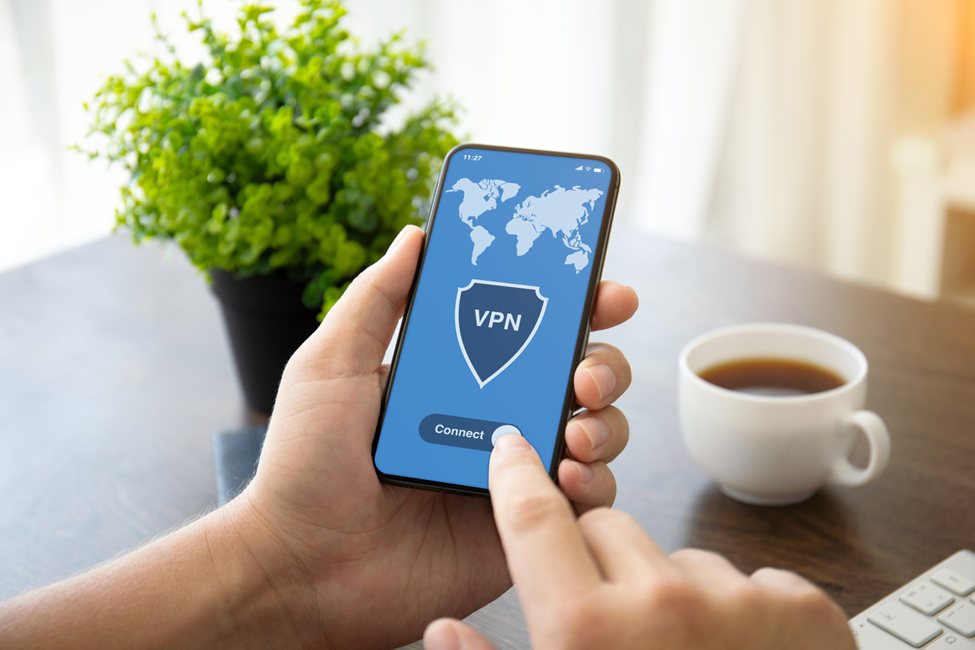What is a VPN and what does it do?
If you’re new to using a VPN or just now deciding whether you’d like to give this a try, it can be a bit overwhelming when you realize how much there is to this tech service. The virtual private network is a type of service that gives you private, secure connection to the internet. It does this by creating a digital tunnel that’s encrypted. This tunnel protects your communications and personal data, allows you to use public Wi-Fi with greater safety, and hides your IP address. When you have a secure VPN connection service in place, it helps you get around content blocks, bypasses censorship, and unlocks restrictions to certain websites. It basically hides your IP address along with your physical location. No one will be able to tell where you are and who you are, as well as what activities you’re conducting online. The VPN refers to the private network connection. The VPN client is the software app that provides management of your device’s VPN connection. This can be confusing as these terms are used interchangeably in some circles. Many operating systems have VPN clients, but there are VPN providers that put together their own clients and make it a more convenient thing to use a VPN.
Where You Can Use a VPN
Of course, you can use a VPN on your desktop computer and laptop. The game has changed and now you can use such a service on your mobile phone and tablet, as well. For this reason, it’s important to be upfront with your VPN provider company and explain for which devices you’d like to have a VPN connection. This way, they’ll be able to provide you with the customized service that is right for your needs.
Why does a speed loss occur with VPNs?
Since the VPN adds a layer of encryption to your connection while it routes traffic through a server that’s in a remote location, your internet connection can experience a serious loss of speed. In fact, the process that adds this encryption is what is responsible for the speed issues. After all, it does take some time to encrypt and decrypt this traffic, then your data has to travel to the server and back to your device. There are other factors that have a negative impact on your connection speed, such as the load on your server or the VPN protocol you’re using. If you are working with a fast VPN service, you might not even notice the difference in speed, especially with normal internet use. However, if you get into things that require a lot of data such as video conferencing or gaming, you will then see the difference. When it comes to things where every second counts, such as video calls for business, you don’t want to have a delay. Slow VPN speeds definitely can be a real issue that leads to constant buffering and pixelation problems. You might even lose your call if you’re on something like Zoom and you don’t have a more advanced VPN service to provide you with all the speeds.
Connect Closer
When your VPN server is close to your physical location, your connection speeds should be faster. This is because the traffic has a shorter distance to cover when it’s being routed through a server that’s close instead of one that’s extremely far away.
Avoid an Overloaded Server
When you have a large number of people using one VPN server, this can become overloaded. As a result, the connection speed suffers. There are providers who put a display on the app or website of their current server load. You should experience faster speeds when you connect to a server that has a lighter load.
Try a Wired Connection
It can be a good option to use a wired connection rather than your Wi-Fi, since this typically will be faster. This is because of the fact that most families have several devices connected to this network at any given time. It results in an unstable connection and slower speeds. If you’ve got the proper equipment to do so, establish a wired connection with hook-up via ethernet cable and then connect to your VPN.
When it comes to using a VPN server, you’ve got to know that the provider is reputable and willing to customize your service to meet your needs. Choose a top notch company for your secure VPN connection and you won’t regret it.
